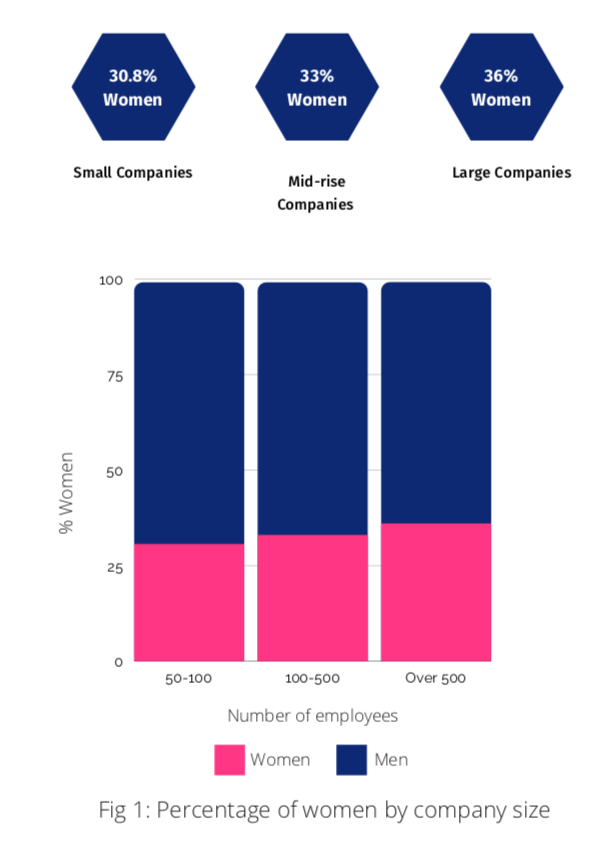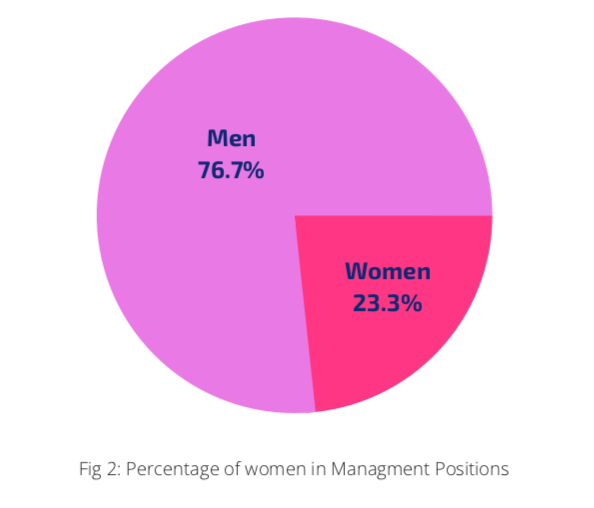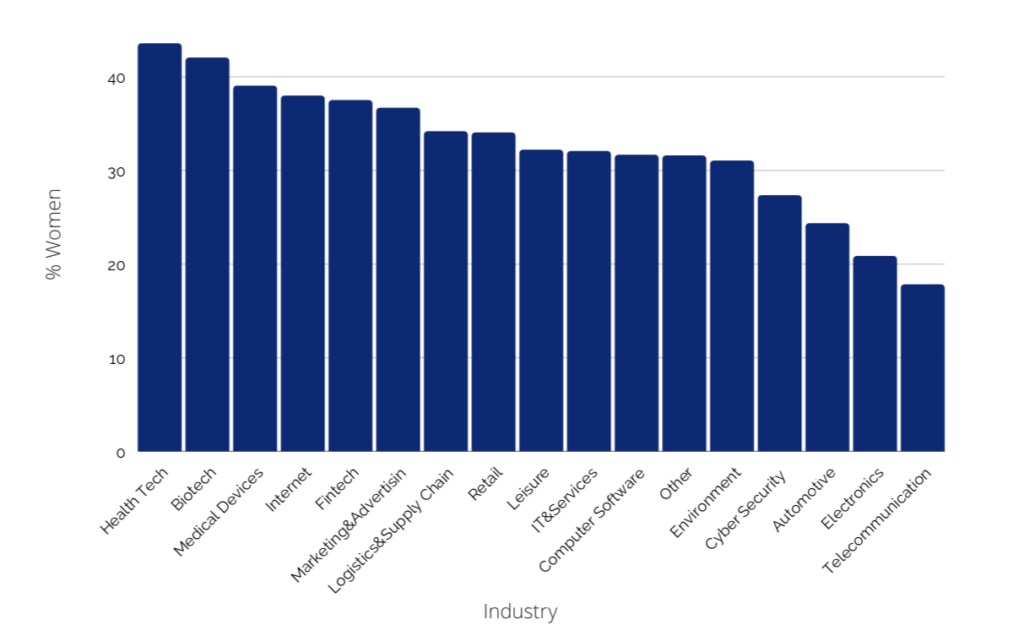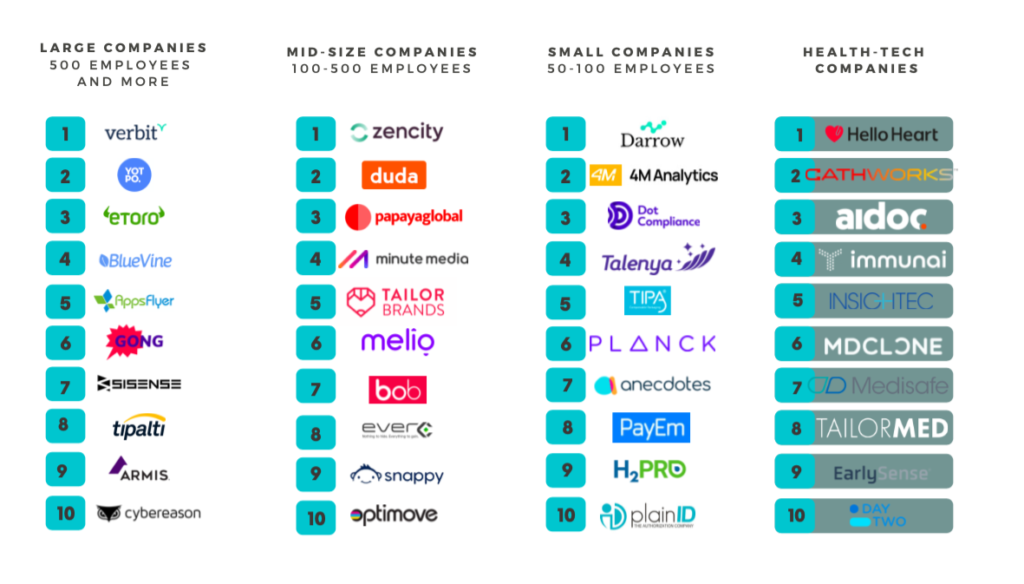Share the report
Women in startups report- 1st edition
A study which examined 424 start-ups (private and VC backed companies) that operate in the ecosystem and 70 Venture Capital (VC) funds that are active in Israel presents captivating data about women in the Israeli ecosystem.
The data were collected by the Power in Diversity initiative which, together with VC and start-ups, strive to promote diversity and inclusion. Over 220 VC and start-ups work together in this initiative. Their goal is to broaden the representation of diverse and varied population in the high-tech industry.
The data reveal that the average percentage of women represented in the companies under study is 33%. However, there are differences in the data regarding the representation of women in the workforce, as based upon the size of the company. There is a more substantial presence of women in large companies (36%) than in smaller companies (30.8%), a fact which supports the argument that it may be more challenging to perform diversification processes in smaller companies. There are various reasons for this, and they stem from the fact that big companies have a larger operating system as well as a greater pool of resources which are focused on recruiting. Moreover, large companies have a greater need of HR, legal, finance, and support roles that are typically filled by women.

The representation of women in tech jobs is a mere 27% – and these data change, as is expected, based on the function of the company. As for management roles (the C Level, VP, directors) – only 23.4% of these positions are filled by women. Less than a quarter of the decision-makers in the ecosystem are women.

Exploring various industries reveals that the digital-health industry presents the most positive data regarding women’s representation in leading roles in the ecosystem, with over 60% of the companies in the industry presenting over 45% of women [employees] and at least 35% of women in leading roles. The industries that have the lowest percentage of women represented in the workforce are the Cyber Security, Automotive, Electronics, and Telecommunication industries with 27%, 24%, 20.8%, and 18% respectively. These data may be partially explained by the [smaller] number of women educated in these disciplines. However, a list of the tech companies that represent an outstanding number of women employees in general, and particularly in development roles, indicates that things can be done differently.

The list of companies that take the lead in women representation is divided into four categories (Large, medium, small and health tech companies).

Additionally, under the categories of Women in Key Roles and Women in Tech Roles, the three companies that present the most impressive data as Papaya global, Tipalti, Minute Media and more were chosen (The report file contains the full list).
The report refer widly to the contribution of VC industry to the DEI status in startups.
When looking at the numbers of the VC industry – out of the seventy VC under study, only 14.8% of the partners are women and 9% only are investing partners. This piece of data correlates with the percentage of companies that are founded by women in the tech industry which is 12%. For the industry to reach its full potential and keep leading as the Israeli start-up nation, it is essential that we step up our workplace diversity. The VCs responsibilities go far beyond providing returns to investors. VCs create value for job markets, entrepreneurs, and society as a whole through business innovation. Eventually it’s a win-win situation. The firms will be able to improve their deal sourcing and talent recruitment.
In conclusion, several companies present impressive statistics on gender equality, reflecting current statistics in society. Some have stepped up their efforts and implemented great initiatives to increase the pipeline and support recruitment of women to technological roles and management positions. Others have adopted organizational cultures that embrace acceptance of women in the workplace, specifically within management and tech positions, and adjust work conditions to the reality of our current lives.
However, there is still room for a great deal of improvement with much that can still be done.
The companies that still have low statistics on female representation need to focus on identifying the needs of their organization and establishing a culture of belonging and inclusion, as well as investing resources in the expansion of the pool of candidates available to support a diverse employee population.
This report is the first step in the creation of a diversity index which pertains to women, Orthodox Jews, Arabs, Ethiopian Jews, the elderly, individuals with physical or mental disabilities, and individuals on the autistic spectrum. The index will help Nasdaq-listed companies or those that are in the initial public offering stage to comply with the new Employment Diversity Requirements. It will also help companies demonstrate the cultural diversity of their employees. Furthermore, the index will help investors understand the values of the company and capture the creativity and flexibility of the management team. It will also help companies see where they are regarding diversified employment.

